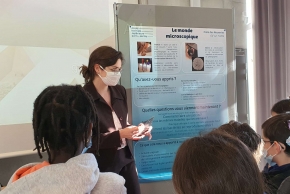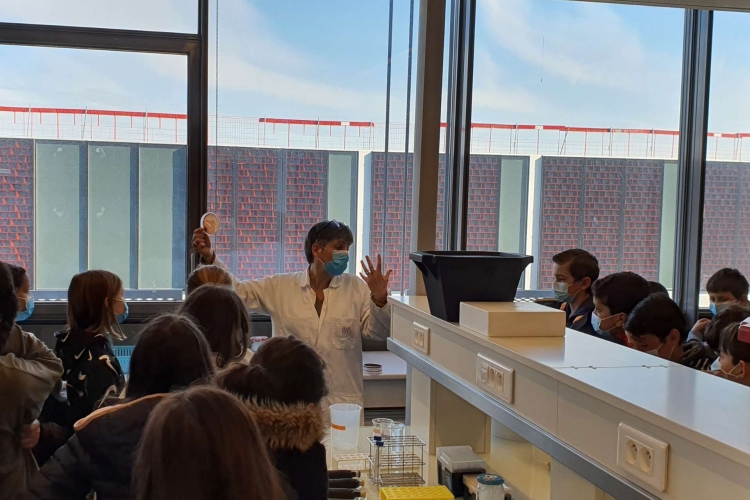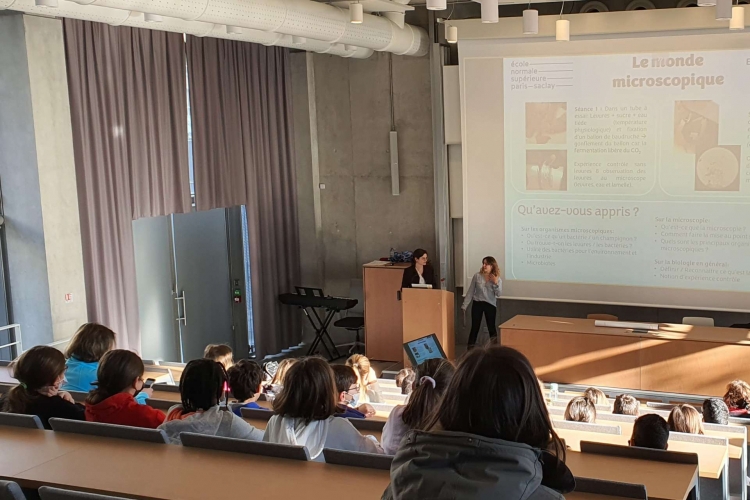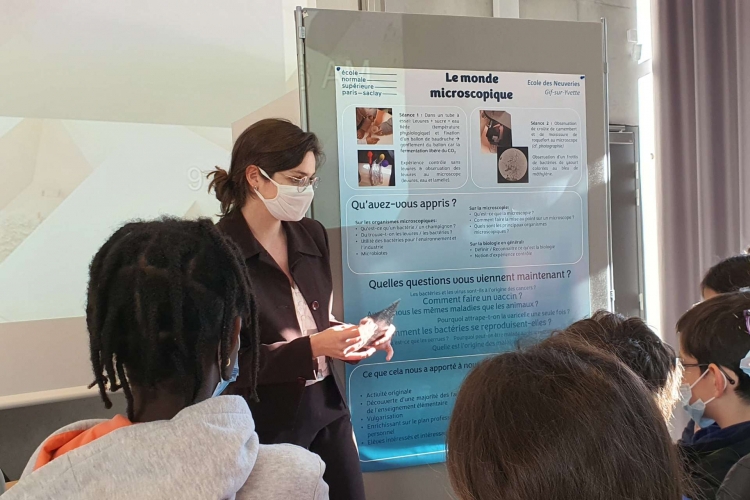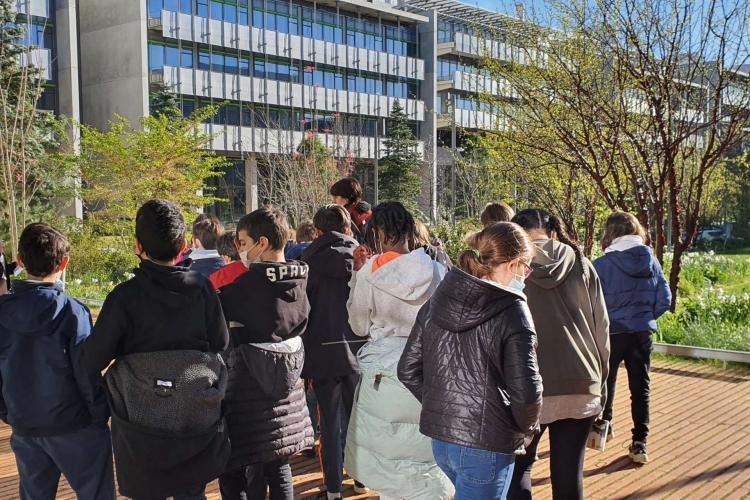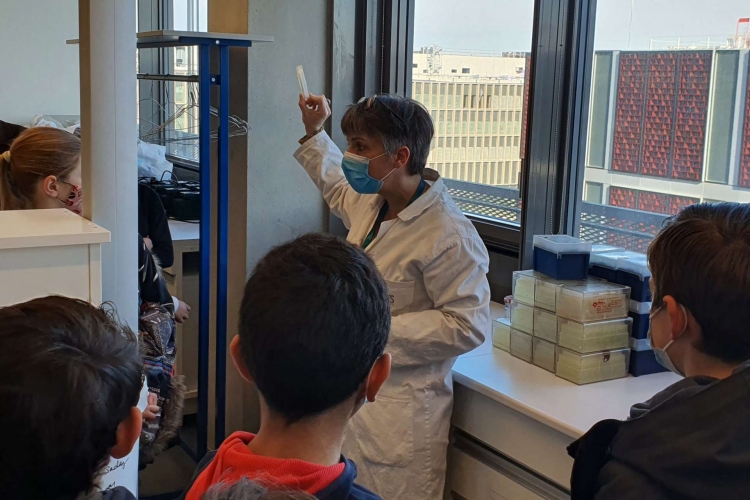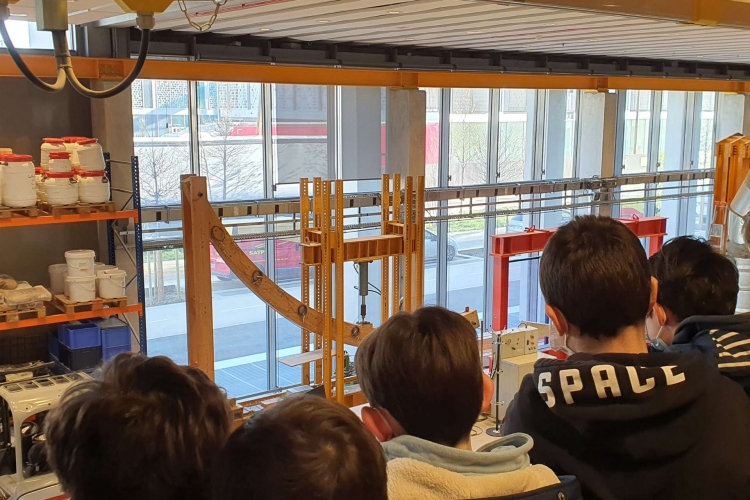Inspiring mentors
Edith Turpyn, now in her second year of a Master’s degree in human physiopathology, shared her retrospective on her experience as a mentor. Responding to the call of the ENS Paris-Saclay’s biology professors, she volunteered with Eva Thuillier to make this new project come to fruition.
Raising awareness of science among young students means giving them a chance to learn about research, to give them a better understanding about what it means to work in science and, who knows, to help them find their calling. Edith Turpyn
An innovative and interactive method
This project was conceived in collaboration, with the support of school admin and the biology department. It was built piece by piece, like a puzzle. The new mentors chose a theme close to the student’s daily life and recent news, to give them an opportunity to conduct original experiments they might never have tried otherwise. The equipment had to be light and easy to transport, which is why they thought about studying microscopic organisms through yeast fermentation and cheese molding.
The sessions were organised similarly in both classes:
- First, an interactive presentation and a “brainstorming” phase, followed by an experiment in small groups, and finally, a discussion about the discoveries made;
- A manipulation and observation with a microscope to understand scientific phenomena.
The goal was to make scientific concepts easy to understand; the mentors chose to create experiments that showed how yeast produces CO2 during fermentation using inflatable balloons attached to test tubes. To observe camembert and roquefort mold through a microscope, they prepared a smear of yoghurt bacteria dyed with methylene blue ahead of time.
Fighting for equality of opportunity
According to Edith Turpyn, research is a field based on communication, between researchers as well as with a wider public. Research jobs can seem hard to grasp, even for adults, and especially for children whose parents do not work in this field. Teaching young students about research through mentorship programs gives everyone an opportunity to learn more, to get a concrete idea of what research is, and maybe even to help some find a calling. This experiment left a lasting impression among the children especially among the young girls who saw their mentors as inspiring models.
A project that must be recreated
After this experience, Edith is ready to try again: “It was a lot of work and took a lot of investment, but if I had to do it again, I would without hesitation.” A testament to how precious mentorship is to our students, this shows how such a unique opportunity can help future scientists find their calling.
